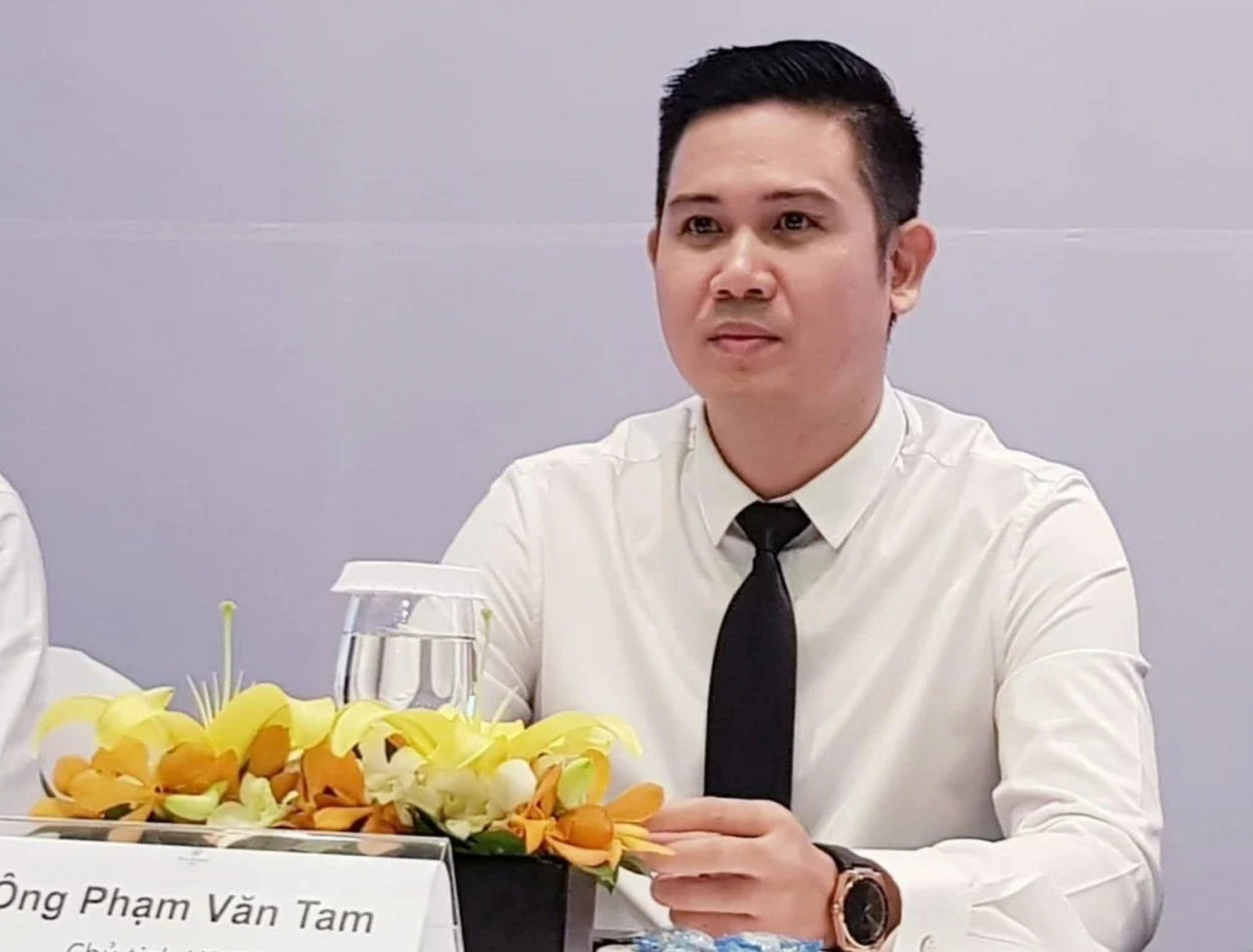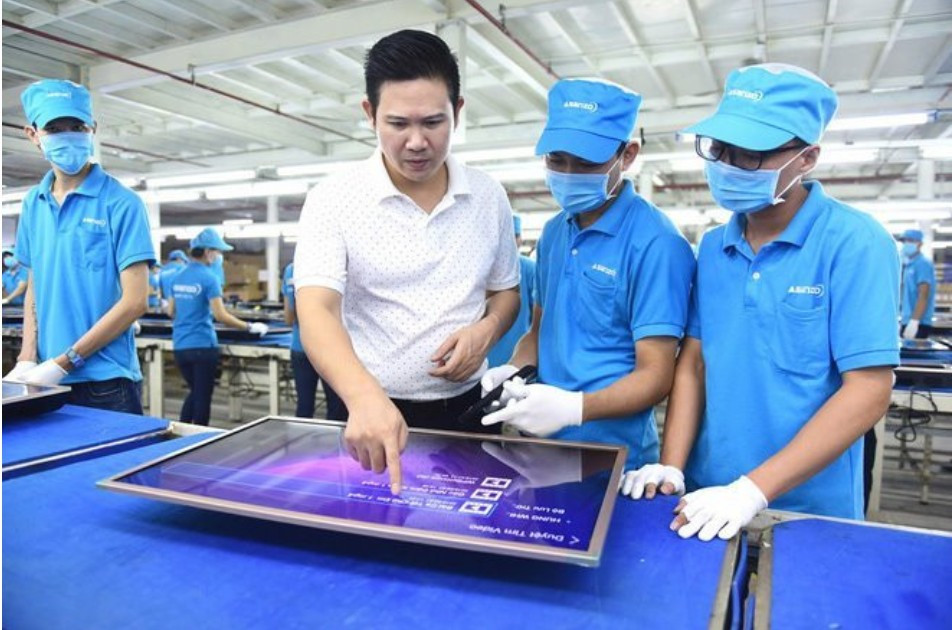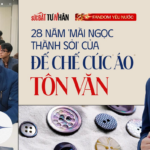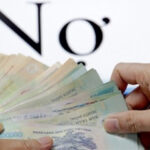The Ho Chi Minh City People’s Procuracy has recently issued an indictment against Pham Van Tam, the 45-year-old former Chairman of Asanzo Corporation, on charges of “Smuggling” and “Tax Evasion.”
According to the indictment, Asanzo Corporation was first registered in October 2016 at the Ho Chi Minh City Department of Planning and Investment. Pham Van Tam served as the company’s director and legal representative. By 2017, Tam was the Chairman of the Board of Directors, overseeing the entire operation of the company.
Selling extremely affordable TVs, raking in VND 4,200 billion a year
In mid-2019, news of Pham Van Tam’s participation in the third season of Shark Tank Vietnam as an investor made headlines. He was portrayed as a young and dynamic entrepreneur who built the Made-in-Vietnam TV brand, Asanzo, from scratch.
Officially established in 2013, Asanzo rapidly rose to become the fourth largest TV brand in Vietnam by 2019, only behind industry giants Samsung, LG, and Sony. Asanzo’s incredible growth could be attributed to its affordable pricing strategy, which helped the brand gain a strong foothold in rural markets, accounting for 70% of the company’s TV sales.

Pham Van Tam, former Chairman of Asanzo Corporation. Photo: TL.
Market research reports by GfK showed that Asanzo held a 16% market share in the Vietnamese TV market, closely following LG with 17%, Sony with 25%, and Samsung with 35%.
According to Asanzo’s data, the company sold 500,000 TV sets in 2016, capturing a 15% market share. In 2017, Asanzo disclosed that they sold an impressive 710,000 TV sets. The company’s total revenue for that year reached VND 4,629 billion, a surge of 180% compared to 2016, with TV sales contributing the most at VND 4,200 billion.
Asanzo TVs were known for their extremely competitive pricing, undercutting many similar models in the market by 30-40%. This pricing strategy, along with their focus on rural markets, contributed to their rapid growth.
In addition to rural consumers, Asanzo also targeted businesses such as guesthouses, hotels, and restaurants that did not require high-end TV models.
According to information on Asanzo’s website, Tam initially chose to source components from overseas and assemble them, eliminating unnecessary features to keep costs down. This strategy allowed Asanzo to offer affordable TVs that met the needs of the majority of consumers.
Asanzo’s success in the TV market spurred the company to venture into the smartphone manufacturing business.
Controversy over the origin of goods
However, Tam’s newfound fame was short-lived as he soon became embroiled in a scandal regarding the origin of Asanzo’s products. As a result, Shark Tank Vietnam announced that Tam would no longer continue as a guest investor on the show.

The affordable TV sets that once dominated the rural market. Photo: TL.
Around the same time, Asanzo faced accusations from Sharp Vietnam. In November 2019, Sharp Vietnam sent a petition to five ministries, accusing Asanzo of falsifying documents and providing false information to the public. Sharp Vietnam claimed that Asanzo’s public announcement in September 2019 about owning Japanese technology and having a cooperation relationship with Sharp Roxy (Hong Kong – SHR) was inaccurate.
In October 2019, the General Department of Vietnam Customs (now the Vietnam Customs Department) initially determined that Asanzo had engaged in “consumer deception,” as their assembly process did not match their advertising claims. Asanzo was found to be importing components from domestic enterprises and assembling them manually, contrary to their claim of being at the “pinnacle of Japanese technology.”
These components were mostly sourced from China and then sold to Asanzo by Vietnamese enterprises.
Regarding tax issues, a tax inspection conclusion in October 2019 by the Ho Chi Minh City Tax Department and related documents revealed that Asanzo had established 19 affiliated companies, registered under family members and employees, to import goods for sale to Asanzo.
Notably, Asanzo declared the imported goods as “finished products” instead of “components” to avoid special consumption tax. The company then sold these “finished products” without issuing invoices.
The Ho Chi Minh City Tax Department subsequently issued a decision to fine, collect, and late payment charges from Asanzo, totaling VND 47.6 billion.
A year after the controversy over the origin of Asanzo’s goods, Tam ventured into the agriculture sector. The 8X entrepreneur claimed to have invested VND 2,000 billion in a system of five cattle farms spanning from Hoa Binh to Nghe An, with a scale of 25,000 cows. However, T&T 159 refuted Tam’s statement and stated that they had not received any investment from him.
T&T 159’s leadership affirmed that Tam’s claim about investing billions of dollars in a cattle farm system was inaccurate and that their relationship was limited to the exclusive distribution of the fertilizer product “3 Con Bo” in the Southern market, produced by T&T 159.
On June 23, 2024, the Ho Chi Minh City Police Investigation Agency initiated legal proceedings against Pham Van Tam on charges of tax evasion. The initial investigation results indicated that Tam had instructed Pham Xuan Tinh, the former General Director of Asanzo and Tam’s younger brother, to sign contracts with three companies: Vietnam Trade and Investment Joint Stock Company, An Thien Production Investment Joint Stock Company, and Tran Thoi Import Export Joint Stock Company.
Subsequently, Asanzo did not issue invoices and omitted these transactions from their accounting records, evading taxes on sales to Asanzo Electric Refrigeration Company under the Asanzo Group. Additionally, Tam was accused of using illegal invoices to account for goods and raw materials, with the intent to evade taxes amounting to over VND 15.7 billion.
Tam was also charged with using Sa Huynh Company to smuggle 1,300 ovens into Vietnam for Asanzo.
The Ho Chi Minh City People’s Procuracy has now completed the indictment, charging Pham Van Tam with “Smuggling” and “Tax Evasion.”
Former Employee Alleges Ex-Chairman of Asanzo Provided Monthly Allowance of 30 Million VND to Evade Police Summons
“Liêm, a key witness in the Asanzo case, alleged that he received a monthly sum of 30 million VND from the former Asanzo Chairman, Pham Van Tam, to avoid police interrogation regarding the illegal shipment. However, the accused has refuted these claims, creating a complex web of allegations and denials that demand further investigation.”
“28 Years of Building an Empire: The Story of ‘Button King’ Ton Thanh Nghia and His Legacy of Trust”
The life of Mr. Ton Thanh Nghia, CEO of Ton Van, is an epic tale of triumph and tribulation. A man who has lived a life of dedication to his craft, his family, and the pride of “Made in Vietnam”, his story is a testament to perseverance and success. Partnering with renowned fashion houses such as Dior, Escada, and Ralph Lauren, Mr. Nghia has woven a brilliant tapestry of achievement, with threads of both glory and tears.
The Great Tax Debt Forgiveness: Erasing 240,000 Billion Dong Over a Decade
As per the proposal by the Ministry of Finance, tax debts that have lingered for over a decade and remain uncollectible despite exhaustive enforcement measures, will be considered for write-off. However, should the defaulting individuals or businesses resume operations, they will be liable to repay the previously waived debt. As of June this year, the total estimated tax debt under the management of the tax industry stood at a staggering 240 trillion VND.










































